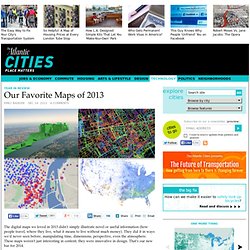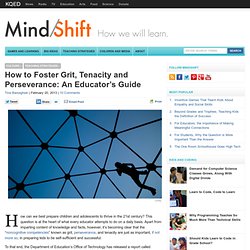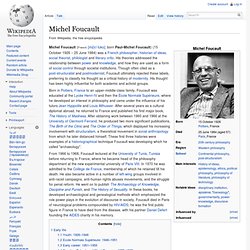

The Most Innovative Maps of 2013 - Emily Badger. The digital maps we loved in 2013 didn't simply illustrate novel or useful information (how people travel, where they live, what it means to live without much money).

They did it in ways we'd never seen before, manipulating time, dimensions, perspective, even the atmosphere. These maps weren't just interesting in content; they were innovative in design. That's our new bar for 2014. So this December, instead of sharing our top 10 maps of the year, we're looking at 10 ways we've learned to think about maps in entirely new ways. This may well have been the year when maps ceased to impress us for what they convey and began to stun us instead for how they did it. 1. Mapbox 2. Google Maps 3. Global Bike Share Map 4.
Grammar. Politics. 2014. California. Local. Blog. Fun. College of the redwoods. To Do. Etcettera. History. Law. Genuinely sad. Crazy town. UDC. Conservative. Film. How to Foster Grit, Tenacity and Perseverance: An Educator’s Guide. Culture Teaching Strategies Getty How can we best prepare children and adolescents to thrive in the 21st century?

This question is at the heart of what every educator attempts to do on a daily basis. Apart from imparting content of knowledge and facts, however, it’s becoming clear that the “noncognitive competencies” known as grit, perseverance, and tenacity are just as important, if not more so, in preparing kids to be self-sufficient and successful. To that end, the Department of Education’s Office of Technology has released a report called Promoting Grit, Tenacity, and Perseverance —Critical Factors for Success in the 21st Century, drafted by research firm SRI International, which addresses how educators can integrate these ideas into their teaching practice: Are these competencies malleable and teachable? “The test score accountability movement and conventional educational approaches tend to focus on intellectual aspects of success, such as content knowledge. Academic mindsets. Presenting America's forgotten history and heroes, with an emphasis on our moral, religious, and constitutional heritage.
Truth in American Education. Afternoon Map. Latest Posts. ...and "my opinion of usefulness/superiority/etc".

Some people just need more hand-holding than others. Not too long ago, a friend started complaining that their (Windows) machine had a problem. Seems it would no longer shut down when the Ctrl-Alt-Del sequence, also known as the three-finger-salute, was pressed. After a couple of weeks about hearing about it, I finally agreed to go over to the house and take a look at it. Came into the house, the machine was powered on with a blank screen since no recent user activity so I hit a button to verify that it was functional and had him log in.
Logout Shutdown Reboot Reboot in 10, 9, 8... I quietly shut My eyes and shook My head for a moment, then interrupted the process so I could call him over to take a look at the machine. "You're welcome. " Perhaps Linux is indeed too difficult for some people to use. Michel Foucault. Born in Poitiers, France to an upper-middle-class family, Foucault was educated at the Lycée Henri-IV and then the École Normale Supérieure, where he developed an interest in philosophy and came under the influence of his tutors Jean Hyppolite and Louis Althusser.

After several years as a cultural diplomat abroad, he returned to France and published his first major book, The History of Madness. After obtaining work between 1960 and 1966 at the University of Clermont-Ferrand, he produced two more significant publications, The Birth of the Clinic and The Order of Things, which displayed his increasing involvement with structuralism, a theoretical movement in social anthropology from which he later distanced himself. These first three histories were examples of a historiographical technique Foucault was developing which he called "archaeology". Early life[edit] Youth: 1926–1946[edit] UDC. The Consumerist. Amazon. Your Media Library.
Environment. Inequality. Maps.